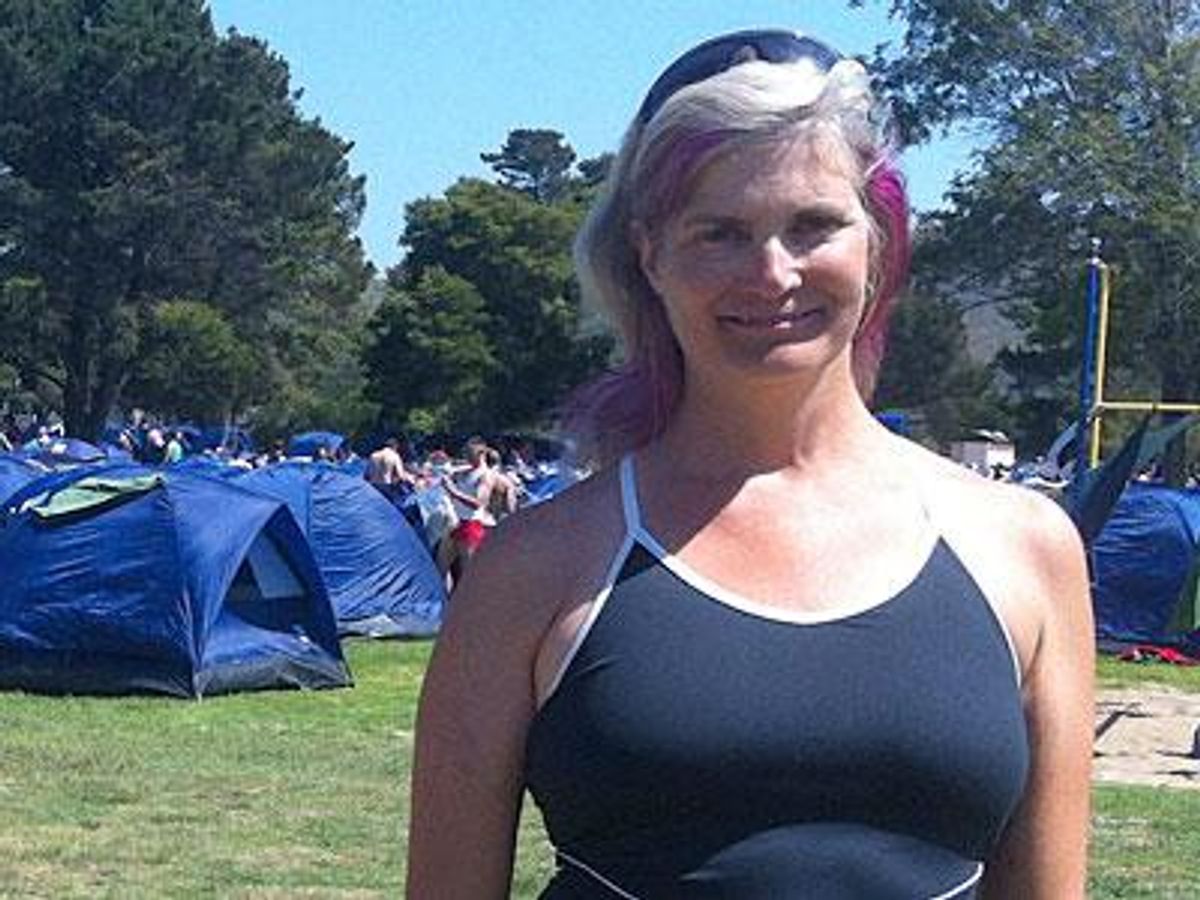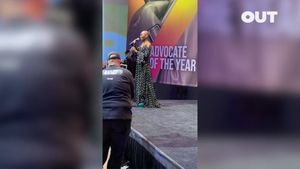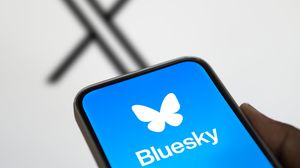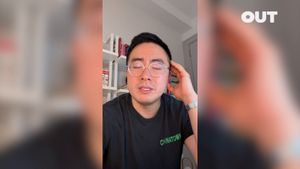What do you get when you take a badass biology nerd with a purple streak in her hair and put her on a bike? You get Suzanne Pontow. With a Ph.D. in cell biology from Washington University in St. Louis, Pontow — who has worked in the field since 1995 — has dedicated her life to finding a cure for HIV. She's currently the codirector of the umbilical cord blood collection program for the state of California and a level five research associate at the Univeristy of California, Davis. And how many levels are there? “Five,” she says.
Her brain is ginormous and so is her heart, because this smarty-pants lab rat just spent the last week as one of the 2,203 riders bicycling from San Francisco to Los Angeles to raise money for HIV/AIDs on the AIDS/LifeCycle. The 545-mile trek, which ended this weekend, celebrated a new fund-raising record: $14.2 million raised for the HIV/AIDS-related services of the Los Angeles Gay and Lesbian Center and San Francisco AIDS Foundation. It also marked two huge milestones: two decades of riding and 20 million miles.
We spoke to Pontow in camp after a long day of biking.
“I have to say the nice thing about working in regenerative medicine is that we are working on a cure, not treating the symptoms,” says Pontow, talking tech while clad in spandex with her helmet still on. The activist is currently working on cutting-edge research using cord blood stem cells to determine if they can be used as a cure for HIV.
“This is based on a bone marrow stem cell transplant in 2006 that resulted in the world’s first HIV cure,” she says. “But it’s not like we can go around giving poz patients bone marrow transplants.”
How much longer will it take to find a cure? “I’d really like to say in the next decade,” Pontow posits. “It will all come together at some point. When the virus takes hold of the body there are many steps it has to go through, and we now know those places to target.”
Then she lets out a sigh before continuing. “What kills me, though, is that kids these days seem to think there’s a magic pill. And although the current meds are keeping people alive, they can be really hard on you. When we are in the lab working with positive blood and we accidentally stick ourselves, we have to go on antiretrovirals. It is not easy.”
Pontow insists that having “an open dialogue about this kind of stuff” is critical, even for researchers. She's felt that backlash firsthand. “The stigma can be the most detrimental. Back in St. Louis we had people freak out at the word ‘stem cell’ and the ones we were using weren’t even fetal, they were totally from adult stem cells.”
She says that “as a researcher, one of the saddest things about this disease is that the factors that make it most preventable are behavioral. If we really want to end this, then we have to change our behavior.”
The mother of three teenage boys, Pontow is starting at home. “Trust me,” she laughs, “I know about behavior.”
Educating her boys about HIV is just one part of it; she also hopes to show them AIDS/LifeCycle is more than just a bike ride — it’s another one of her ways of helping others.

















































































